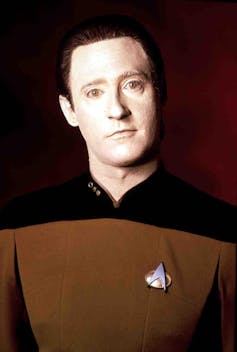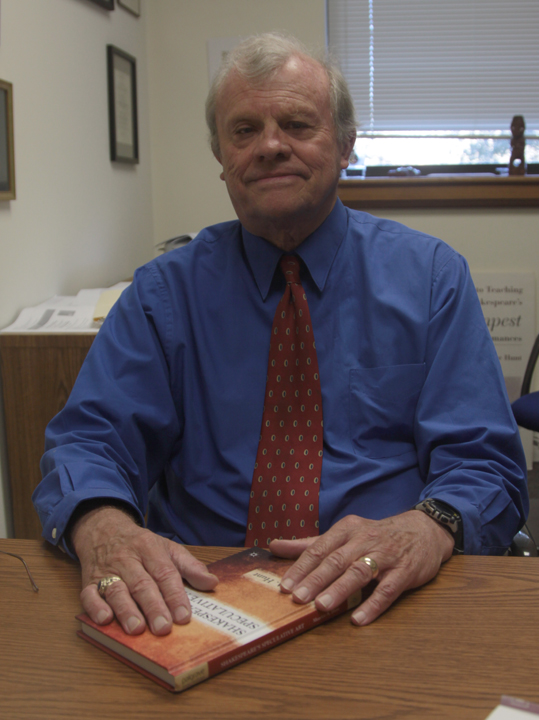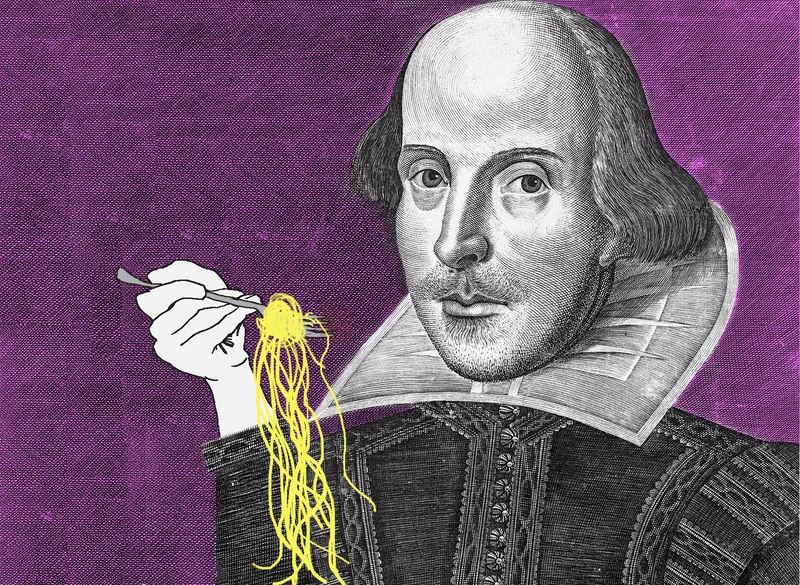You are using an out of date browser. It may not display this or other websites correctly.
You should upgrade or use an alternative browser.
You should upgrade or use an alternative browser.
Uncle Bill Shakespeare...Alive and Well!
- Thread starter Meanderer
- Start date
RadishRose
SF VIP
- Location
- Connecticut, USA
Meanderer
Seemly Member
A day in the life of William Shakespeare

A man of many interests
"William Shakespeare is revered around the world as the greatest playwright to have ever lived. But Shakespeare was much more than just a man of the theatre. He was also a celebrated poet, a family man and a hugely successful businessman."
"As well as writing new plays, Shakespeare juggled other interests from his home in Stratford-upon-Avon, New Place. Based on what we know about him, and the history of this period, we have imagined what a typical day in his life was like in 1604."
"Tax records reveal that New Place had 10 fireplaces, which means it may have had as many as 30 rooms. Stratford, not London, was Shakespeare's base from 1597 onwards. Shakespeare was a literary commuter, travelling south when professional commitments required him to be there, but enjoying his fine Warwickshire home whenever he had the chance. When in the capital he rented. He did buy a house in London in 1613, but it is likely that he made the purchase purely as an investment."
"In 1604 he wrote a new piece set in the far-off land of Cyprus for his theatre company, The King's Men. The play was called Othello after its main character, a general in the Venetian army. Shakespeare took his inspiration from a book called Gli Hecatommithi by Geraldi Cinthio, which also told the story of a Moorish military officer. Much of Shakespeare's work was based on other stories, meaning he would have needed a study with a large number of books to refer to when writing."
(READ MORE)

A man of many interests
"William Shakespeare is revered around the world as the greatest playwright to have ever lived. But Shakespeare was much more than just a man of the theatre. He was also a celebrated poet, a family man and a hugely successful businessman."
"As well as writing new plays, Shakespeare juggled other interests from his home in Stratford-upon-Avon, New Place. Based on what we know about him, and the history of this period, we have imagined what a typical day in his life was like in 1604."
04.45
Shakespeare awakes
"Shakespeare wakes up in one of the most impressive houses in Stratford-upon-Avon.""Tax records reveal that New Place had 10 fireplaces, which means it may have had as many as 30 rooms. Stratford, not London, was Shakespeare's base from 1597 onwards. Shakespeare was a literary commuter, travelling south when professional commitments required him to be there, but enjoying his fine Warwickshire home whenever he had the chance. When in the capital he rented. He did buy a house in London in 1613, but it is likely that he made the purchase purely as an investment."
05:00
Straight to work
"In an age before electric or gas lighting, Shakespeare rises early to take advantage of natural light.""In 1604 he wrote a new piece set in the far-off land of Cyprus for his theatre company, The King's Men. The play was called Othello after its main character, a general in the Venetian army. Shakespeare took his inspiration from a book called Gli Hecatommithi by Geraldi Cinthio, which also told the story of a Moorish military officer. Much of Shakespeare's work was based on other stories, meaning he would have needed a study with a large number of books to refer to when writing."
(READ MORE)
RadishRose
SF VIP
- Location
- Connecticut, USA
Yikes... I read quite a bit of this. I now know more about Billy Shakes than I ever did. 
Meanderer
Seemly Member
Four times Shakespeare has inspired stories about robots and AI

Commander Data plays Prospero
 Commander Data is an android on the starship USS Enterprise. United Archives GmbH/Alamy
Commander Data is an android on the starship USS Enterprise. United Archives GmbH/Alamy
"Star Trek is one of science fiction’s richest sources of Shakespeare allusions. In the 1994 episode Emergence, android Lieutenant Commander Data is performing the role of exiled magician Prospero from The Tempest on the holodeck. Just as he quotes Prospero’s mysterious claim that he has brought the dead to life, the Enterprise’s voyage is disrupted by an unexpected storm."
"The Tempest also begins with a ship being driven off course by a (magical) storm, and a curious connection is implied between Data’s performance and the discovery of a strange new being on the ship, an emerging artificial consciousness."
Commander Data plays Prospero

"Star Trek is one of science fiction’s richest sources of Shakespeare allusions. In the 1994 episode Emergence, android Lieutenant Commander Data is performing the role of exiled magician Prospero from The Tempest on the holodeck. Just as he quotes Prospero’s mysterious claim that he has brought the dead to life, the Enterprise’s voyage is disrupted by an unexpected storm."
"The Tempest also begins with a ship being driven off course by a (magical) storm, and a curious connection is implied between Data’s performance and the discovery of a strange new being on the ship, an emerging artificial consciousness."
Meanderer
Seemly Member
Thomas Jefferson and Shakespeare
"While in England in 1786, Jefferson went on a trip with John Adams that included Shakespeare’s childhood home at Stratford-upon-Avon. Although Adams described this tourist site as “small and mean,” Jefferson simply noted the costs of going there, including entry fees to see the birthplace and the tomb. He and Adams also followed the custom of other visitors by cutting a souvenir piece of wood from a chair where Shakespeare had supposedly sat. In 2006, Jefferson’s home at Monticello exhibited this memento, along with a wry note by Jefferson: “A chip cut from an armed chair in the chimney corner in Shakespeare’s house at Stratford on Avon said to be the identical chair in which he usually sat. If true like the relics of the saints it must miraculously reproduce itself.”
"Jefferson and Adams’s diaries certainly suggest the visit was disappointing (one biographer pictures Jefferson’s “teeth obviously grating” as he jotted down the fees). Many years later, however, a very different version of these events—perhaps apocryphal—was suggested by Abigail Adams. She wrote in an 1815 letter that when Thomas Jefferson first reached Stratford, he kissed the ground." READ MORE
"While in England in 1786, Jefferson went on a trip with John Adams that included Shakespeare’s childhood home at Stratford-upon-Avon. Although Adams described this tourist site as “small and mean,” Jefferson simply noted the costs of going there, including entry fees to see the birthplace and the tomb. He and Adams also followed the custom of other visitors by cutting a souvenir piece of wood from a chair where Shakespeare had supposedly sat. In 2006, Jefferson’s home at Monticello exhibited this memento, along with a wry note by Jefferson: “A chip cut from an armed chair in the chimney corner in Shakespeare’s house at Stratford on Avon said to be the identical chair in which he usually sat. If true like the relics of the saints it must miraculously reproduce itself.”
"Jefferson and Adams’s diaries certainly suggest the visit was disappointing (one biographer pictures Jefferson’s “teeth obviously grating” as he jotted down the fees). Many years later, however, a very different version of these events—perhaps apocryphal—was suggested by Abigail Adams. She wrote in an 1815 letter that when Thomas Jefferson first reached Stratford, he kissed the ground." READ MORE
Mizmo
Well-known Member
- Location
- Ontario, Canada
Meanderer
Seemly Member
Mirrors are main player in Shakespeare works, writes professor (2011)
“Shakespeare’s Speculative Art,” by Dr. Maurice Hunt, research professor of English at Baylor, was published this summer and examines character development in Shakespeare’s plays through the uses of “specula,” which is the Latin word for mirrors. "READ MORE

horseless carriage
Well-known Member
The BBC are currently running a three part program of Shakespeare's adult life. Part one aired last night, it was called: Rise of a Genius. I found it riveting.
Meanderer
Seemly Member
In Shakespeare's Plays, Mealtimes Were A Recipe For Drama

"Anyone who has ever spent Thanksgiving with family knows that the table is a great place for drama. We talk, we shout, we love, we fight — or sit in silence and seethe. And we're all stuck there, gnawing on our turkey legs, playing out our usual roles, unable to just walk offstage."
"That is the very idea William Shakespeare exploited to fill theaters."
"It's difficult to name a play in which Shakespeare doesn't cook up a bit of conflict around the table. It's a good excuse for the playwright to get a lot of people onstage at the same time, to bring friend and stranger together, and to do it all in a close space where the characters have no choice but to talk and interact. And create dramatic tension."
"In The Taming of the Shrew, Petruchio wants to tame the headstrong Katherine, so he steals her away between their wedding and reception, only to starve her into submission over a non-supper at his house. Orlando bursts in on As You Like It's courtly forest feast, setting the wheels in motion for the closing marriage. There's a vanishing meal in The Tempest, the stone soup revenge in Timon of Athens, and the shocking cannibalism of Titus Andronicus. Just to name a few." (READ MORE)
Paco Dennis
SF VIP
- Location
- Mid-Missouri
William Shakespeare, often referred to as “the Bard”, left us with timeless wisdom through his plays and sonnets. Let’s explore some of his poignant quotes on life and death:
- “Cowards die many times before their deaths; the valiant never taste of death but once.” According to the Bard of Avon, those who let their cowardice get the best of them lose a bit of strength every time. It is only those who hold their heads high that stay strong until the end1.
- “And all our yesterdays have lighted fools the way to dusty death. Out, out, brief candle!” In Macbeth, Shakespeare compares life to a “brief candle.” Though it might shine bright, it’s only temporary1.
- “Death, a necessary end, will come when it will come.” As Caesar explains in Julius Caesar, death is inescapable. There is no use worrying about it; we can only live our lives to the fullest until then1.
- “To die, to sleep; To sleep, perchance to dream.” To many, death is compared to sleep. If one is facing struggles in life, death might not be something to be afraid of. Prince Hamlet longs for a dreamless sleep or death1.
- “By medicine life may be prolonged, yet death will seize the doctor too.” Though medicine can keep someone alive for longer, there is no escaping death. Even the doctor will face death as well. The personification of death is a common trope in Shakespeare’s stories1.
- “The undiscovered country from whose bourn no traveler returns.” In Hamlet, death is seen as an “undiscovered country.” Many travelers go to this place, but nobody returns1.
- “Golden lads and girls all must, As chimney-sweepers, come to dust.” Death doesn’t discriminate. From the “golden” lads and girls to the lowly workers, everyone faces death in the end. As the saying goes, ashes to ashes, dust to dust1.
- “When he shall die, Take him and cut him out in little stars, and he will make the face of heaven so fine That all the world will be in love with night.” This beautiful line from Romeo and Juliet speaks of the eternal impact a person can have even after death. Their memory becomes a constellation in the night sky, captivating the world1.

















